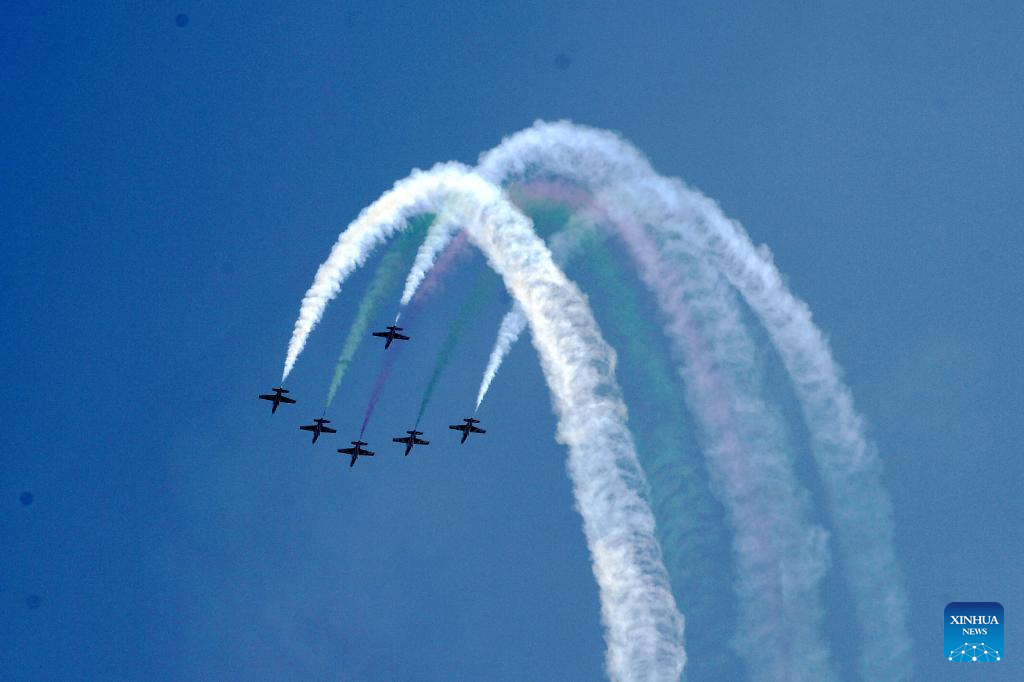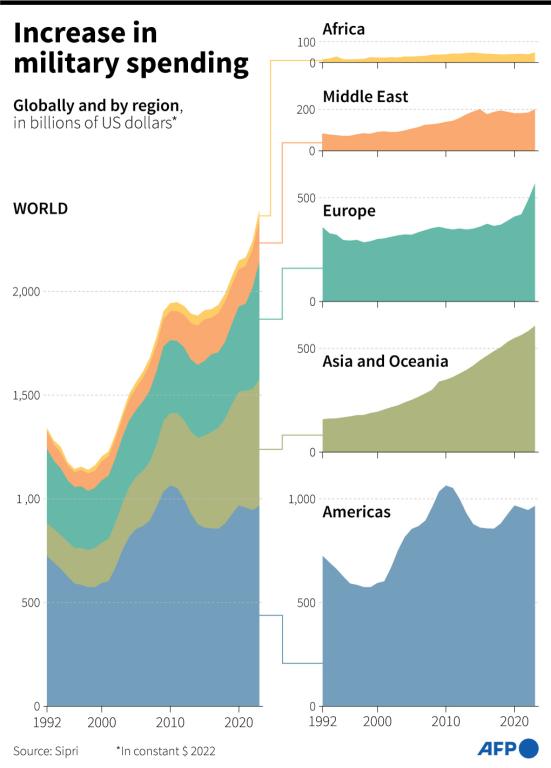
STOCKHOLM - Global military spending saw its steepest year-on-year increase last year since 2009, amid conflicts, rising tensions, and insecurity, a Stockholm-based think tank said on Monday.
In its latest report, the International Peace Research Institute (SIPRI) said that total global military expenditure reached $2,443 billion in 2023, an increase of 6.8 percent in real terms from 2022. The United States is the largest global spender.
ALSO READ: DPRK top leader guides simulated nuclear counterattack drill
Lorenzo Scarazzato, a researcher at SIPRI's Military Expenditure and Arms Production Program, said that such an unprecedented rise in military spending is a direct response to a global deterioration in peace and security. While countries are prioritizing military strength, they risk "an action-reaction spiral in the increasingly volatile geopolitical and security landscape," he said.
READ MORE: 10 killed after 2 Malaysian military helicopters crash
In 2023, North Atlantic Treaty Organization (NATO) members accounted for $1,341 billion, equal to 55 percent of the world's military expenditure. Military spending by the US rose by 2.3 percent to reach $916 billion in 2023, representing 68 percent of total NATO military spending, SIPRI's report indicated.

Most European NATO members increased their military expenditure last year. Their combined share of the NATO total was 28 percent, the highest in a decade, the report added.
For Europe's NATO states, the past two years of Russia-Ukraine conflict "have fundamentally changed the security outlook," Scarazzato said.
READ MORE: AUKUS ties threat to peace in Asia-Pacific
"This shift in threat perceptions is reflected in growing shares of GDP being directed towards military spending, with the NATO target of 2 percent increasingly being seen as a baseline rather than a threshold to reach," he added.
SIPRI, founded in 1966, provides data, analysis and recommendations for military expenditure, the arms trade, disarmament and arms control.


